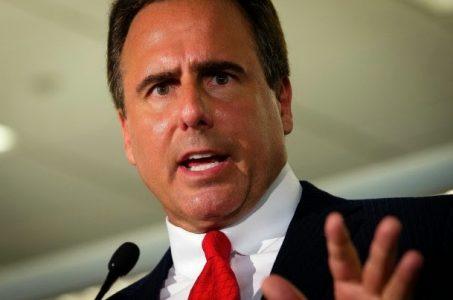Revel Casino’s Titanic Debt Trying to Avoid an Iceberg
Posted on: February 19, 2013, 05:53h.
Last updated on: February 19, 2013, 05:37h.
Apparently, the common truism that even a poorly run casino will be profitable isn’t true, at least not from looking at the money outlook of Atlantic City-based casino resort Revel’s financial denouement of late. The property’s overseer, Revel Entertainment Group LLC, recently brought in law firm Kirkland & Ellis LLP along with investment bank Moelis & Co. to tell them how to better manage their spiraling debt load and turn them around to profitability at last.
Poor Performance Blamed on Sandy and No Smoke Signals
Revenue reports released in February showed an abysmal January, with only $8 million in gambling revenues brought in; a 19% drop from December. Investors had shored up the profit-gushing financial walls of the property in December with a $150 million influx of working capital; a move which also added to Revel’s mammoth debt load. The property has been open for less than a year, and has already amended its credit agreements four times. Financial turnaround firm Alvarez and Marsal was also brought in to consult on how to better conserve cash and restructure operations. With $1.2 billion already amassed in debt for Revel, the firm has its work cut out for them.
November 2012 was even lower than this January for reported revenues, a reality blamed on the devastation that Hurricane Sandy brought to Atlantic City; Revel Casino actually shut down due to the storm’s ravages for several days in October and early November.
Initially created as a “destination resort” aimed at aiding Atlantic City’s goal of becoming a chic entertainment and convention center, not just a one-day wonder for visitors, the property’s complete smoking ban has proved a bane among its potential customers, it would appear. Perhaps adding to the casino’s woes have been political factions such as the key casino union as well as conservative tax payers, none of whom have been happy with a $260 million tax rebate to help fund nearby improvement projects, as well as an additional financing deal in 2011, brought about in part at least with the support of New Jersey Gov. Chris Christie, who said he believed Revel would “change the paradigm in Atlantic City.”
Whoops.
Poor Investment
Investment house Morgan Stanley initially backed Revel at its inception in 2006, but backed out midway through the casino’s construction, writing off almost its entire $1.25 billion investment. Revel CEO Kevin DeSanctis was able to round up a new group of investors in early 2011, who loaned the property an additional $1.2 billion to complete the casino resort. Executives are now telling their creditors that the game (and gaming) plan is to increase Revel’s appeal to slot players, while also spending another $10 million on new amenities such as quick-service restaurants and a designated high-limit slots area with lounge. How exactly that will put the beleaguered property back in the black remains unclear, but Moody’s Investors Service has cut the casino’s credit rating and now refers to its financial outlook as “unsustainable.”
Time to send out that SOS.
Related News Articles
Australian Lottery Giant Tatts Gets Shareholder Approval for Tabcorp Merger
VICI Properties Slides on News of Secondary Offering Worth up to $927.36M
Most Popular
FTC: Casino Resort Fees Must Be Included in Upfront Hotel Rates
Genovese Capo Sentenced for Illegal Gambling on Long Island
NBA Referees Expose Sports Betting Abuse Following Steve Kerr Meltdown
UPDATE: Former Resorts World & MGM Grand Prez Loses Gaming License
Most Commented
-
UPDATE: Whiskey Pete’s Casino Near Las Vegas Closes
— December 20, 2024 — 31 Comments -
Caesars Virginia in Danville Now Accepting Hotel Room Reservations
— November 27, 2024 — 9 Comments -
UPDATE: Former Resorts World & MGM Grand Prez Loses Gaming License
— December 19, 2024 — 8 Comments -
FTC: Casino Resort Fees Must Be Included in Upfront Hotel Rates
— December 17, 2024 — 7 Comments















